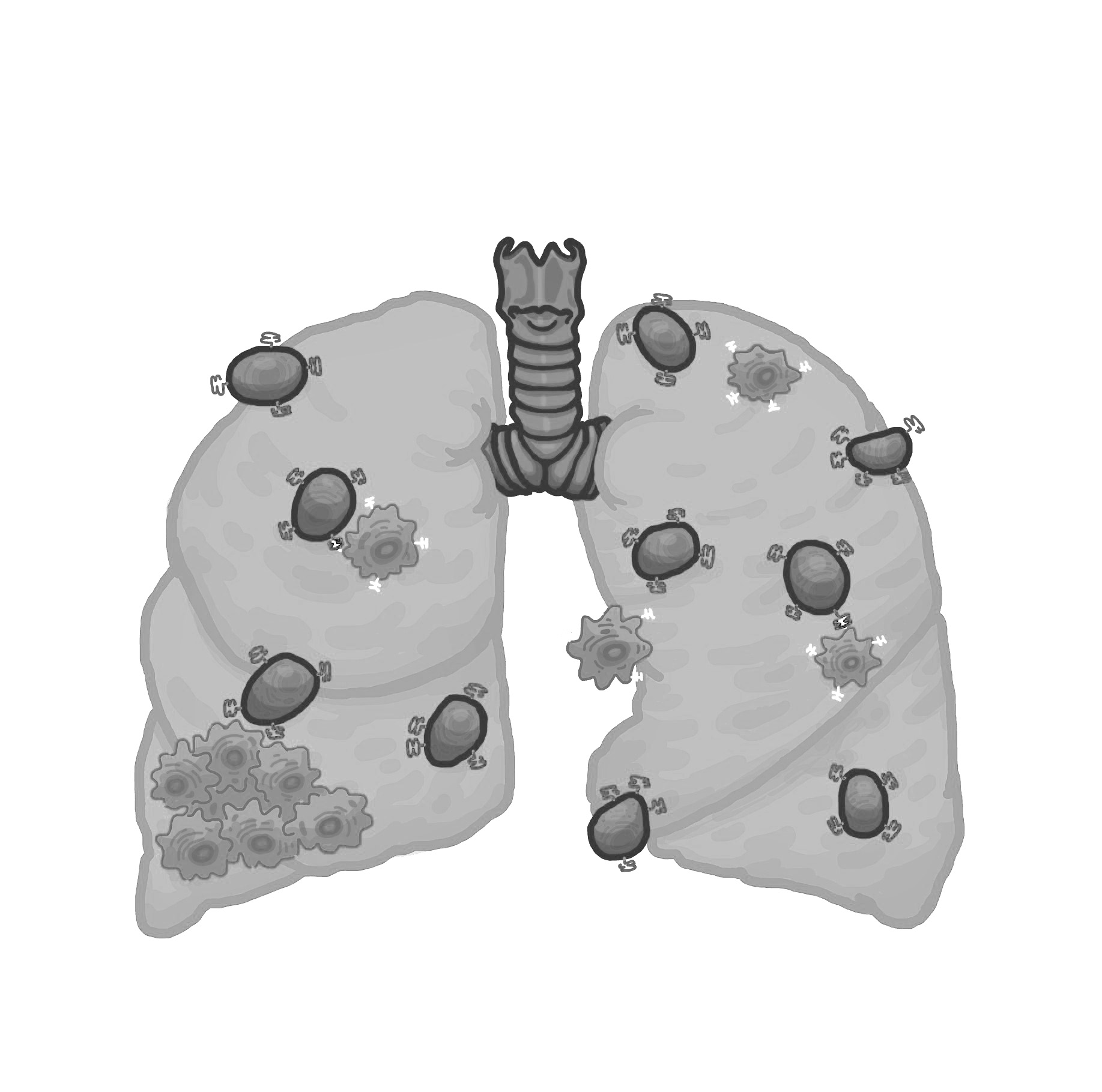
A new Yale study has shown how lung cancer may develop resistance to therapy in some patients.
Researchers at the School of Medicine have found that lung cancer cells may become resistant to a type of cancer therapy by disrupting patients’ normal immune response. The finding provides researchers with a molecular basis for understanding drug resistance in lung cancer. The study was published in the Cancer Discovery journal on Oct. 12.
“Understanding the biology of acquired resistance to these therapies is really important because this knowledge will allow us to figure out what we need to do to treat resistant tumors,” said Katerina Politi, a professor in the School of Medicine’s Department of Pathology and the study’s senior author. “Knowledge of how tumors escape can also help us develop ideas for therapeutic approaches to prevent drug resistance.”
Lung cancer is an infamously dangerous type of cancer; almost 90 percent of lung cancer cases are nonsmall lung cancer, according to the Yale Cancer Center. This subtype of lung cancer is known for its aggressiveness and frequent metastasis, which make it incurable.
Immune checkpoint inhibitors are a relatively new addition to the arsenal of chemotherapeutic agents combatting lung cancer. These agents seek to harness the power of the patient’s immune system to fight the disease, Politi said. Two molecules, PD-1 and PD-L1, function as brakes for the immune system, she added, and by preventing the action of these molecules, the immune system is revitalized and the body’s own fighter T-cells can work to kill the cancer cells.
“New agents that target immune checkpoints have created a paradigm shift in the treatment of lung cancer,” said Roy Herbst, a co-author of the study and chief of medical oncology at the Yale Cancer Center and Smilow Cancer Hospital. “People who lived for months now live for years.”
Even though immune checkpoint inhibitors have made a significant impact on the treatment of lung cancer, Herbst said, the therapy has only been effective for about 20 percent of patients. He added that tumors in patients who did not respond to the treatment were categorized as resistant, prompting the study’s search to find a molecular basis for the resistance.
“As immune checkpoint inhibitors entered the clinic, we began to wonder how tumors treated with these agents might manage to escape treatment with these therapies,” Politi said. A team of scientists and clinicians genetically sequenced 14 resistant tumor samples and modeled the disease in mice.
To pinpoint a mechanism for resistance, the researchers created patient-derived xenografts — mouse models in which the primary cancer cells from a human patient are transplanted into a formerly healthy mouse.
Normal immune system function occurs when cells in the human body capture an antigen, or a disease-causing agent, and then present this antigen to a helper T-cell, which then recruits a cytotoxic T-cell to destroy the cancerous cell. The study reports that in resistant tumors, however, the machinery necessary for antigen presentation is disrupted. As a result, the cancerous cells bypass the immune checkpoint inhibitors.
Though the findings present a major opportunity for understanding lung cancer resistance mechanisms, researchers still must address a number of challenges.
“Some of the next steps include studying a larger set of drug-resistant tumors to determine how frequently loss of HLA I antigen presentation is observed as a mechanism of resistance,” Politi said.
This study was funded in part by an $11 million grant from the National Cancer Institute, leading to the creation of Yale’s Specialized Programs of Research Excellence, or SPORE, in Lung Cancer.
Twenty-six authors from a variety of fields were listed on the study, highlighting the interdisciplinary nature of cancer research.
“The team met together once a week,” Herbst said. “There were clinical members treating patients, laboratory members who did sequencing and informatics people analyzing data.”
Yale is one of five institutions in the country with a SPORE devoted to lung cancer, according to the Yale Cancer Center website.
Vikram Shaw | vikram.shaw@yale.edu







